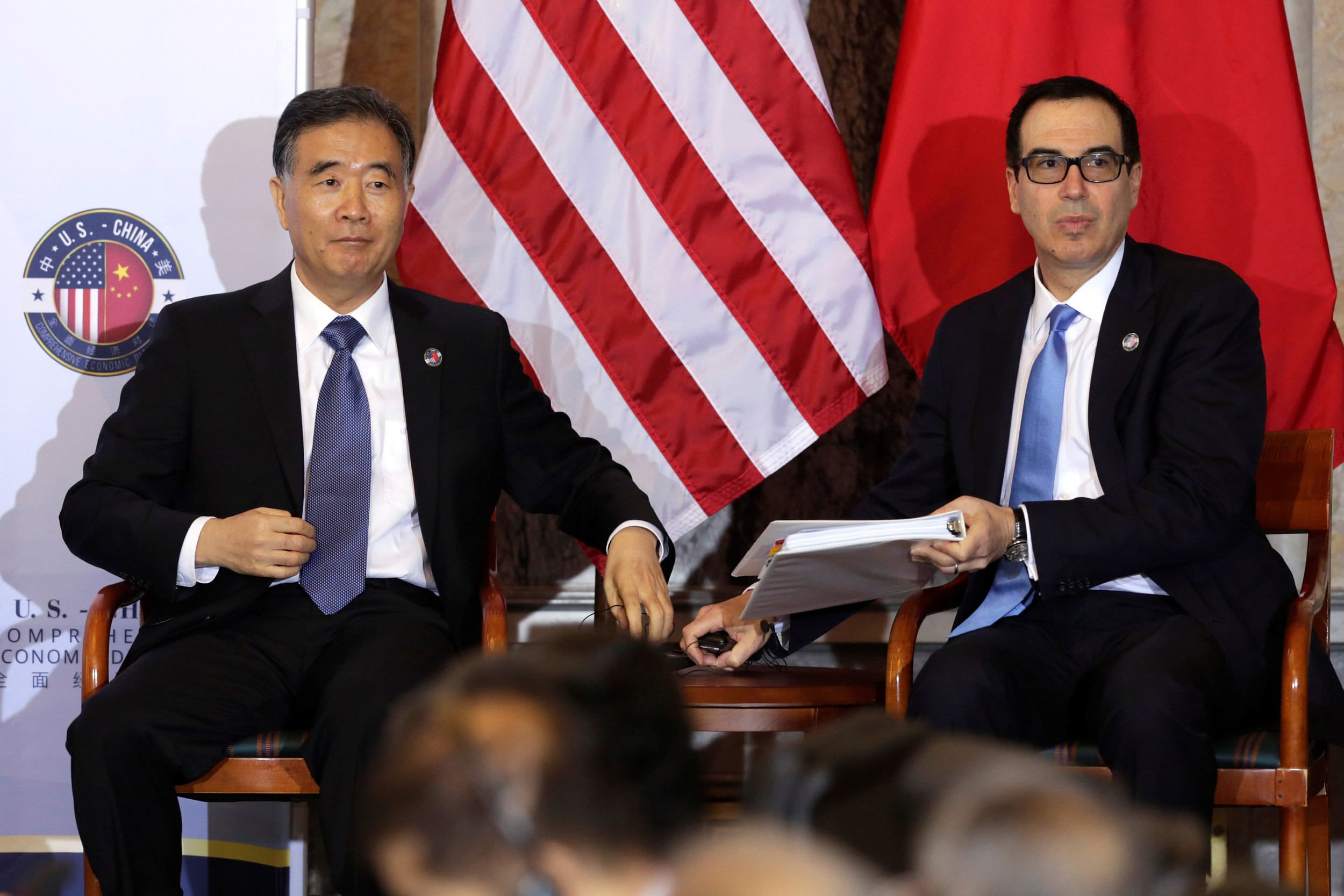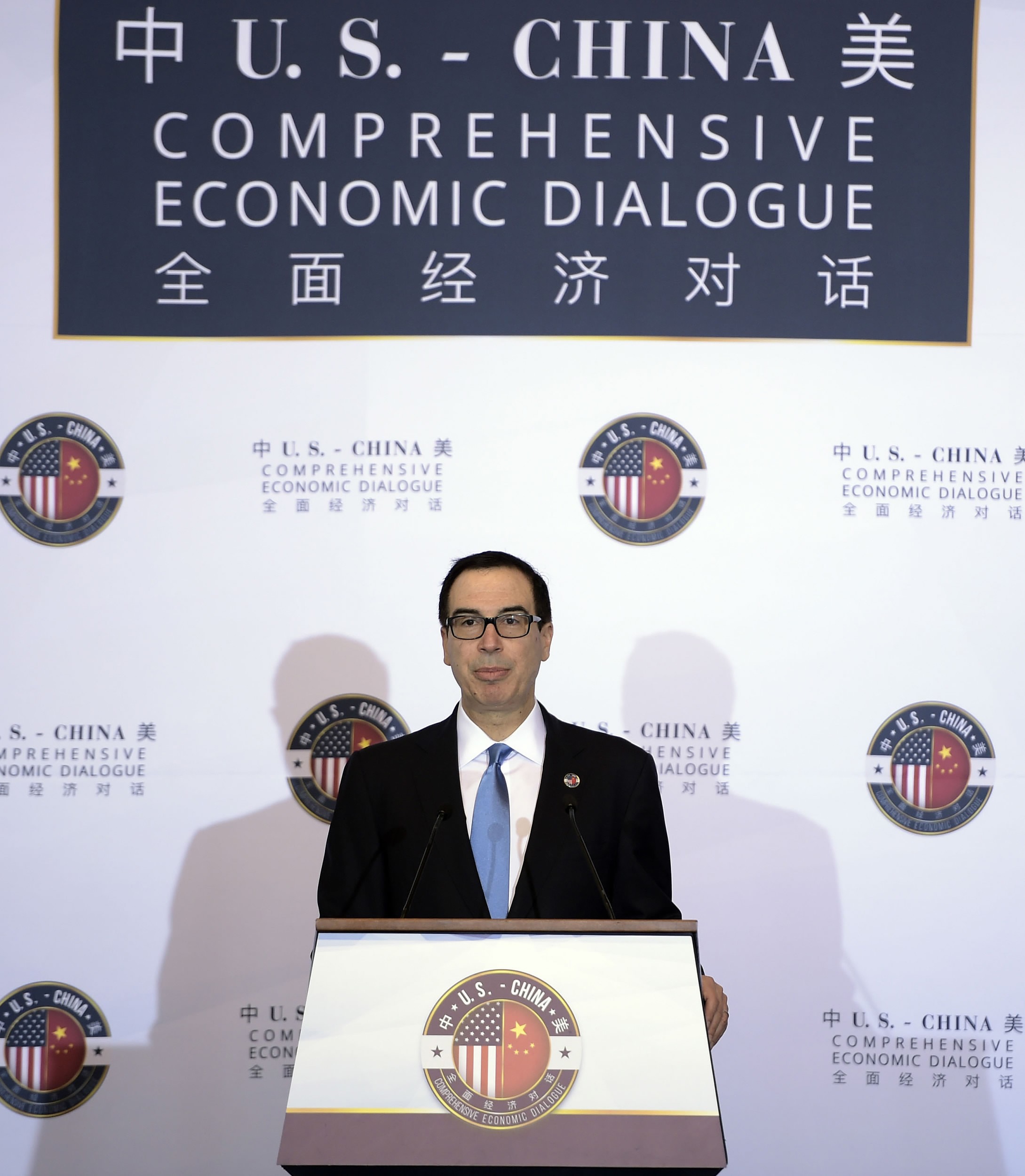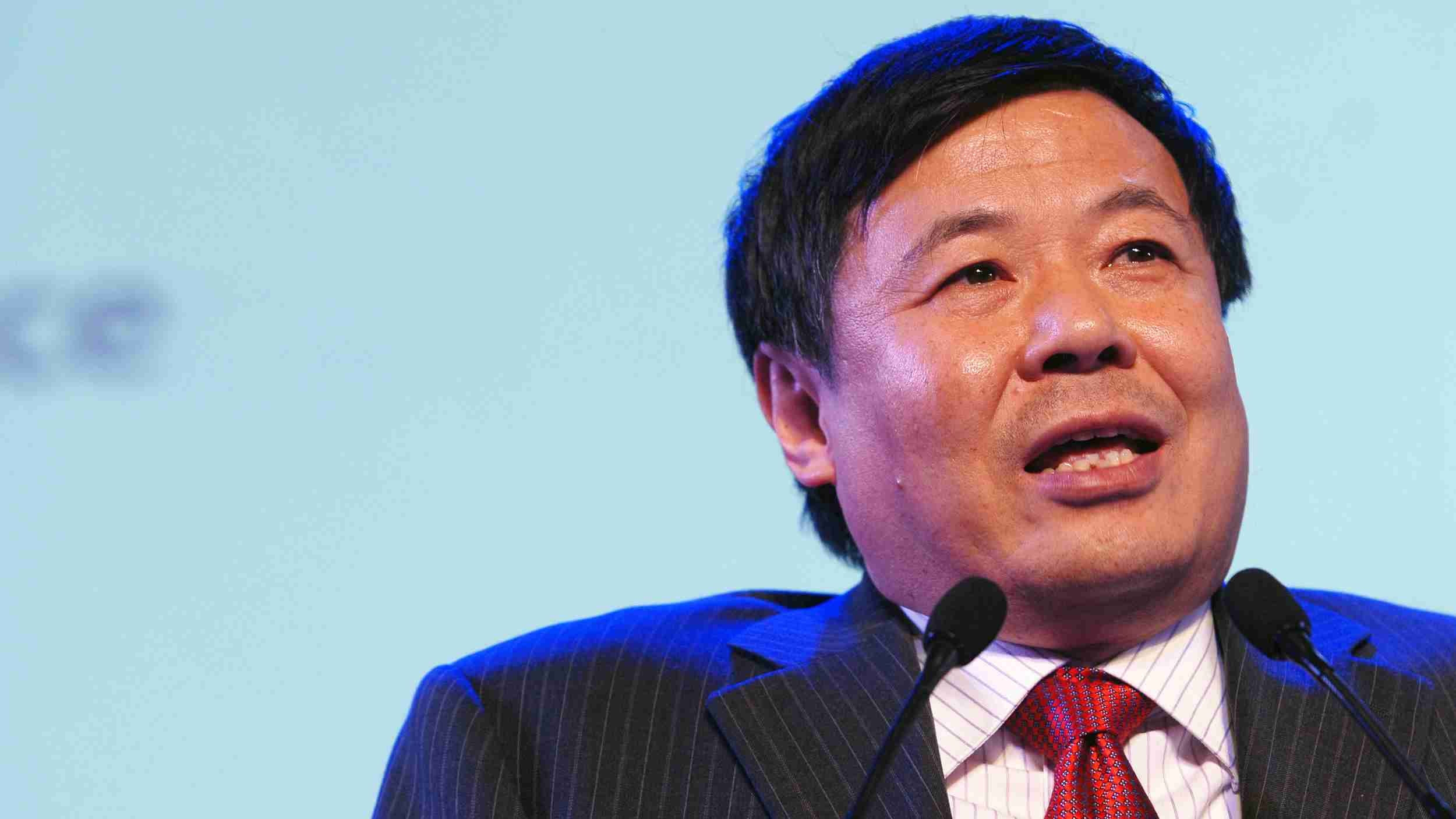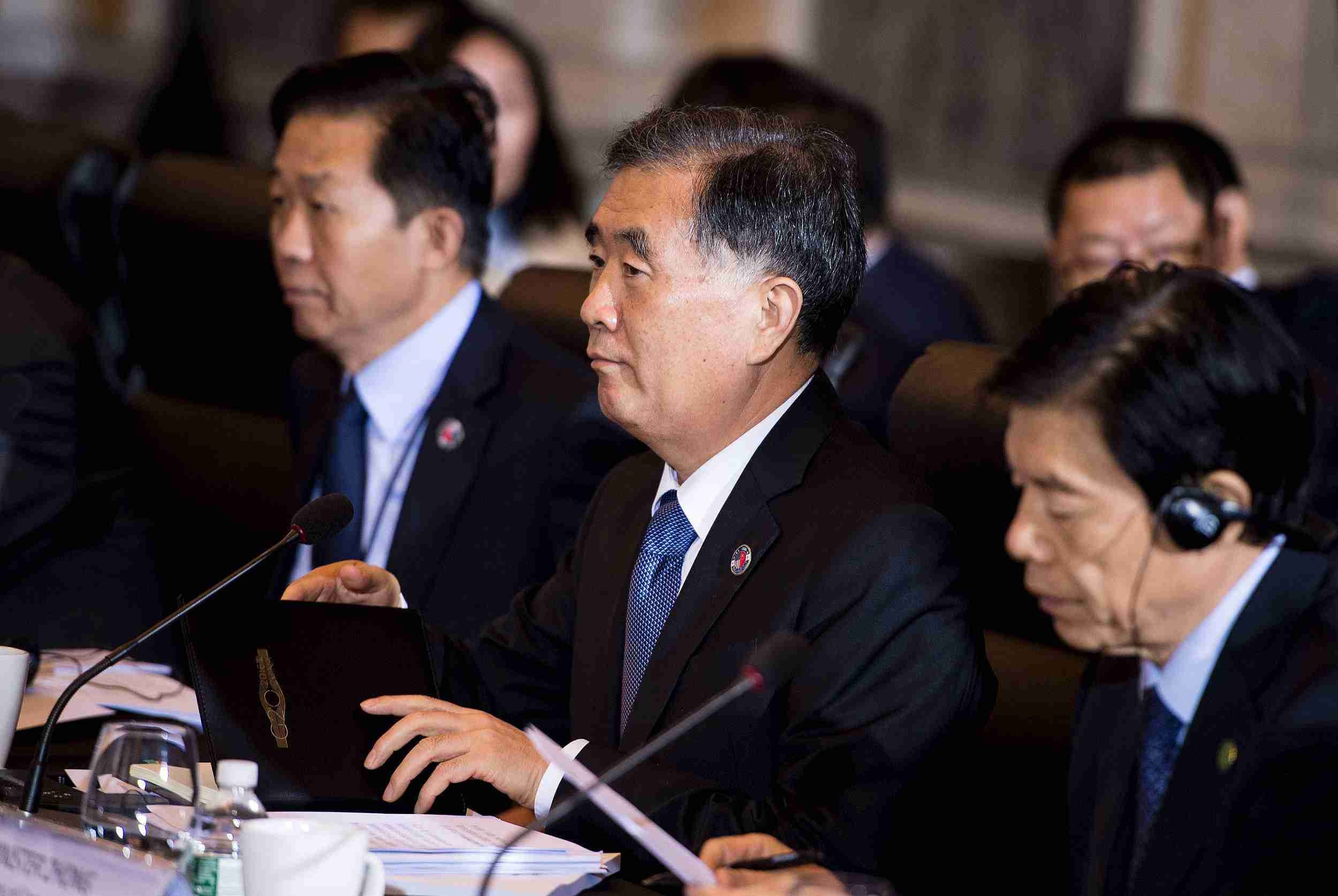
Business
15:02, 20-Jul-2017
China-US economic talks end in Washington

Chinese and US officials on Wednesday concluded the first China-US Comprehensive Economic Dialogue in Washington, which was described as "innovative, result-oriented and constructive".
The dialogue managed to chart the course of China-US economic cooperation and laid a solid foundation for future collaboration, a statement distributed after the meeting on Wednesday said.
Chinese Vice Premier Wang Yang co-chaired the dialogue with US Treasury Secretary Steven Mnuchin and Secretary of Commerce Wilbur Ross.

US Treasury Secretary Steven Mnuchin and China's Vice Premier Wang Yang attend the China-US Comprehensive Economic Dialogue to discuss bilateral economic and trade issues in Washington, DC on July 19, 2017. /VCG Photo
US Treasury Secretary Steven Mnuchin and China's Vice Premier Wang Yang attend the China-US Comprehensive Economic Dialogue to discuss bilateral economic and trade issues in Washington, DC on July 19, 2017. /VCG Photo
During the talks, the two sides discussed and reached consensus on a wide range of issues, including China-US trade and investment, the 100-day action plan and the one-year action plan of economic cooperation, global economy and governance, macroeconomic policies, finance, and agriculture.
Wang said the establishment of the Comprehensive Economic Dialogue is a key outcome of the meeting between Chinese President Xi Jinping and his US counterpart Donald Trump in their Mar-a-largo summit in April and a major decision made by the two presidents in view of the overall trend of China-US relations.
He pointed out that China and the US are each other's largest trading partners and major sources of investment, and cooperation is the only choice.
As the world's top two economies, China-US cooperation will benefit not only the companies and peoples of both countries, but also the whole world, Wang noted.
"As President Xi Jinping said, we have a thousand reasons to make the China-US relationship work, and no reason to break it," Wang added.

Treasury Secretary Steven Mnuchin speaks during the China-US Comprehensive Economic Dialogue at the US Department of the Treasury on July 19, 2017 in Washington, DC. /VCG Photo
Treasury Secretary Steven Mnuchin speaks during the China-US Comprehensive Economic Dialogue at the US Department of the Treasury on July 19, 2017 in Washington, DC. /VCG Photo
The US side said that the first round of the dialogue allows the two sides to focus not only on concrete economic and trade issues between the two countries, but also on long-term strategic challenges.
"As the world's two largest economies and major drivers of global growth, the US and China have strong overlapping interests," the US side noted.
"The two countries need to work together to maximize the benefits for both sides and develop a fairer, more balanced and sustainable economic relationship between China and the US."
As a "template" and example for China-US economic cooperation, the 100-day action plan has produced some industry-specific commitments, including the resumption of US beef sales in China and the pledge to grant US companies limited access to some financial service sectors.

As for the one-year action plan of economic cooperation, both sides agreed to further substantiate and improve the plan during its implementation in a result-oriented and mutually-beneficial fashion.
China-US trade deficit
Both countries agreed to "work constructively together to reduce trade deficit."
Chinese Vice Finance Minister Zhu Guangyao told CGTN that the Chinese delegation felt very confident and content that the two sides found this effective mechanism to communicate and address their many differences.
Zhu believes that one way to address this issue is through the US increasing its goods sold to China.

Chinese Vice Finance Minister Zhu Guangyao /VCG Photo
Chinese Vice Finance Minister Zhu Guangyao /VCG Photo
The US has placed barriers on its high-tech exports to China, treating China as a more-or-less hostile power, so it cannot sell products like satellite dishes and integrated circuits to the country, Zhu said, calling on the US to loosen its control.
On the other hand, China has a surplus in the trade of goods, while a big deficit in services trade, he said. The two countries, after a frank and practical analysis of the problems, have reached the consensus that the US shall expand its exports to China instead of reducing imports from China to address the trade imbalance.
Steel overcapacity

Chinese Vice Premier Wang Yang (C) takes his seat for the China-US Comprehensive Economic Dialogue at the US Department of the Treasury July 19, 2017 in Washington, DC. /VCG Photo
Chinese Vice Premier Wang Yang (C) takes his seat for the China-US Comprehensive Economic Dialogue at the US Department of the Treasury July 19, 2017 in Washington, DC. /VCG Photo
Both sides agreed that steel overcapacity is an international issue which needs a global response, said Zhu.
The US acknowledged that China, among the world's major economies, is the country that takes the lead to cope with this issue, and has made unprecedented efforts and achieved obvious outcomes. The two countries have always kept and will continue further close communication over the policies on this issue.
China and the US understood that it is not realistic to solve all problems via one dialogue. Both sides should deepen communication, enhance understanding and promote mutual understanding, said Zhu. Problems and conflicts will be properly handled as the two countries share closely-linked economic ties.
11160km
Related Stories:

SITEMAP
Copyright © 2018 CGTN. Beijing ICP prepared NO.16065310-3
Copyright © 2018 CGTN. Beijing ICP prepared NO.16065310-3